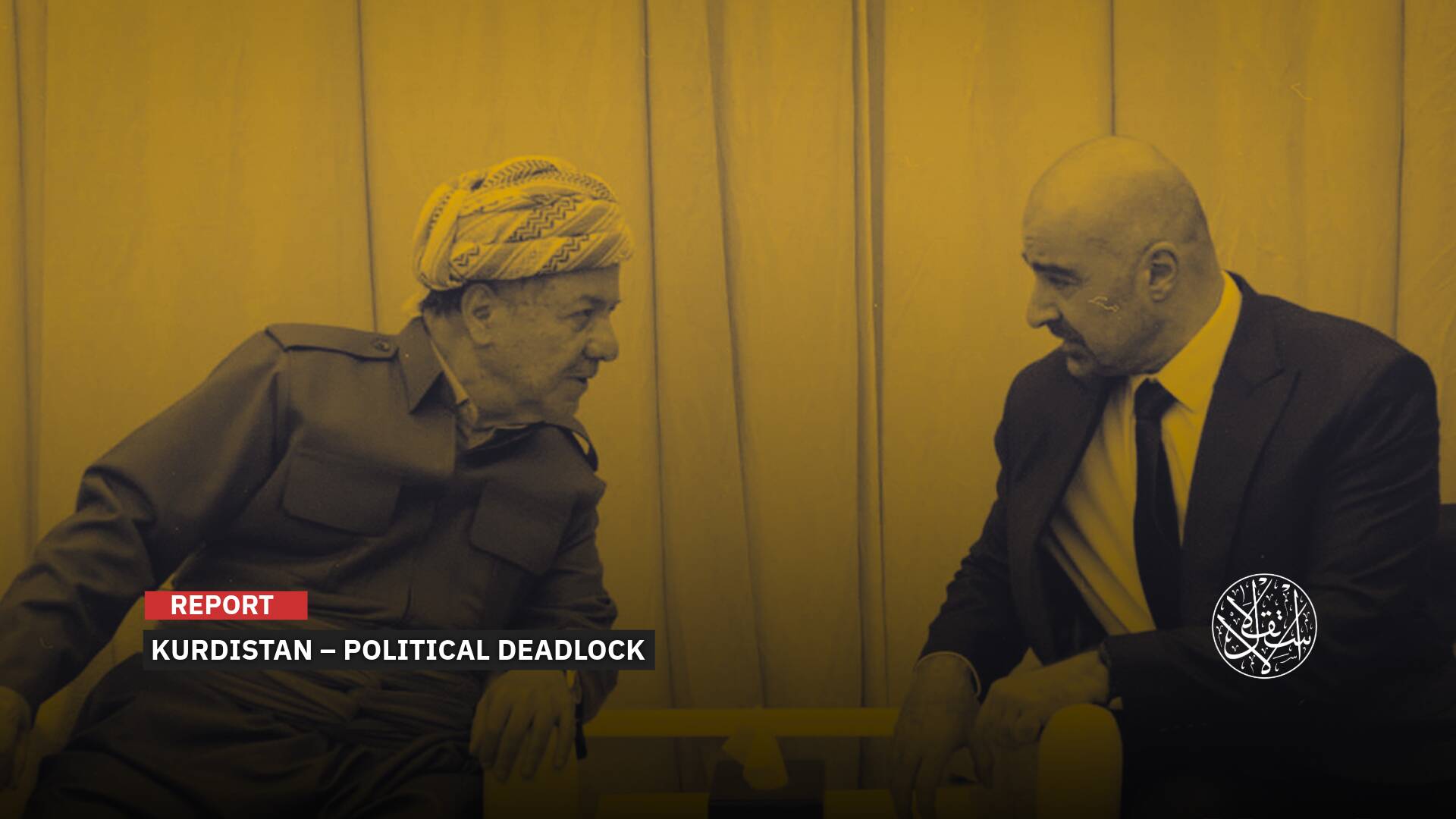Operation of al-Karama Crossing Disrupts the Calm: What’s Next for Jordan-’Israel’ Relations?

Analysts anticipate an increase in operations similar to the Jordanian Operation at the al-Karama Crossing against Israelis.
Following Operation al-Karama Crossing in which three Israeli security personnel were killed, many questions have arisen about the future impact of this operation on relations between “Tel Aviv” and Amman, and whether it signals the beginning of other significant operations.
On September 8, 2024, Maher al-Jazi, a former Jordanian truck driver and soldier, fired professional shots at three Israeli security personnel at the al-Karama border crossing (also known as the Allenby Bridge) between Jordan and “Israel,” killing them instantly before being martyred.
According to his brother, Shadi al-Jazi, from the al-Howeitat family, “Maher was angered by the situation in Gaza and saddened by the state of the Muslim world. Anyone who sees the killing of our brothers in Gaza reacts against the Israeli Zionist Occupation,” as reported by Ammon News.
Expected Escalation
Regarding the aftermath of this operation, Jordanian writer and political analyst Hazem Ayyad stated, “Jordanian-Israeli relations will be affected, but this issue will be contained, especially since Tel Aviv cannot escalate further and open a new front. Any closure of border crossings would be self-punishment for Israel.”
“While both sides will attempt to contain the incident, the trajectory of Jordanian relations with the entity remains confrontational, especially as the Israeli right-wing continues to push for escalation, increasing the likelihood of future clashes and heightened tensions,” Ayyad told Al-Estiklal.
“Operation al-Karama Crossing indeed reflects significant unrest within Jordanian society, due to Israeli Occupation crimes in Gaza over the past year, with no ability from the international community or Arab institutions to deter it.”
Ayyad expects a rise in similar incidents even in Arab countries.
Therefore, “this issue extends beyond Jordan, as unrest is sweeping across the entire Arab region due to the Israeli Occupation’s crimes.”
The political analyst pointed out that “many border incursions by Jordanians have occurred but have not been reported or were unsuccessful. It is estimated that there have been over a hundred such incidents in recent months during the Gaza war.”
“Operation al-Karama Crossing received significant attention due to its nature and location,” he added.
The area of the operation is known as al-Karama Crossing in Palestine, the King Hussein Bridge in Jordan, and Allenby Bridge in “Israel.” Regardless of the different names, it refers to the sole crossing point for Palestinians from the West Bank to the outside world through Jordanian territory.
The bridge spans the Jordan River to the north of the Dead Sea and roughly midway between Amman and occupied Jerusalem, linking the West Bank with Jordan and used by Palestinian travelers to reach Jordan and then travel abroad.

Breaking the Calm
On the Israeli side, Israeli assessments attributed the operation to rising security tensions in the West Bank, the ongoing war in Gaza, the lack of any prospect for a truce, and continued protests in Amman.
Commenting on the operation during the opening of his government’s weekly meeting on September 8, Israeli Prime Minister Benjamin Netanyahu described it as a “difficult day,” adding, “We are surrounded by a murderous ideology led by Iran's axis of evil.”
Some Israeli analyses criticized the Jordanian government and the Jordanian royal palace, accusing them of security lapses.
Smadar Perry, the Arab affairs editor for Yedioth Ahronoth, estimated that the operation is a result of the decline in coordination and cooperation between the two countries regarding security aspects along the border areas, due to the ongoing war in Gaza.
Perry considered the armed operation a failure of Jordanian security forces, noting that both “Israel” and Jordan have been working—each from its own position—since the start of Operation al-Aqsa Flood on October 7, 2023, to prevent any armed operations and thwart any attempts to smuggle weapons through the crossing.
She added that “Israel” has been pressuring Jordan for several months to establish closed borders at the crossing, similar to the Karem Abu Salem crossing adjacent to Gaza.
The Jordanians announced their interest, “but in practice, they have not advanced this step, while Israel continued to press without response, leading to the decision to withdraw the request to close the cargo crossing,” Perry added.
Military correspondent Udi Etzion of Walla stated that the operation “broke the calm that had prevailed in the area for 30 years.”
He attributed the execution of the operation to the tense security situation in the West Bank, the ongoing war in Gaza, and the Israeli refusal to cease fighting and withdraw from the Gaza Strip.
Etzion noted that the crossing, located in the Jordan Valley, is under joint responsibility (between “Tel Aviv” and Amman) and handles about 100,000 trucks and over 3 million travelers annually.
He pointed out that the operation comes against the backdrop of strained relations between Israeli Prime Minister Benjamin Netanyahu and Jordanian King Abdullah II due to the ongoing war on Gaza.
He mentioned that “the ability to ensure that a Jordanian driver does not reach the crossing armed depends on the efforts of Jordanian security forces and the efforts invested by King Abdullah II’s administration in this regard.”
The correspondent also noted that the armed attack follows “an increase in hostile activity” along the long border with Jordan during 2023.
This, he said, is evident in the increase in weapon smuggling and the entry of militants along the border into al-Aghwar, amid efforts by (the Palestinian Resistance Movement) Hamas and Iran to ignite a front in the West Bank.

Jordanian Denial
On the official Jordanian front, the Ministry of Interior announced on September 8 that authorities had initiated an investigation into the shooting incident on the other side of the King Hussein Bridge (Allenby).
In contrast, Hamas welcomed the operation, stating in a press release that it was a response to the crimes of the Israeli Occupation and a reaffirmation of the Arab and Islamic nations' support for the Palestinian people and their resistance.
Similarly, the Palestinian Islamic Jihad Movement praised the operation, stating in a press release that it was “a true reflection of the sentiment of the Jordanian people and the Arab and Muslim nations towards the massacres of the Israeli Occupation.”
One day after Operation al-Karama Crossing, Channel 14 reported that an attempt to smuggle dozens of pistols and ammunition from Jordan had been thwarted.
In recent months, there have been several infiltration attempts from the Jordanian side into “Israel,” including one in April 2024.
According to Israeli Army Radio, an armed individual came from Jordanian territory and fired at a patrol but caused no injuries and did not cross the border fence.
Channel 12 revealed on September 9 that “before the recent shooting incident, Jordanian intelligence had arrested four Jordanians from as-Salt about two months ago. They had been making explosives and preparing a truck to blow up at al-Karama crossing.”
“Jordanian authorities discovered the explosives in a lab set up by these individuals,” according to the Israeli channel.
During the investigations, the detainees stated that they had not received any external support and had planned the operation independently.
“Jordanian authorities did not publicize this incident to avoid provoking the anti-Israel sentiment in the Jordanian street,” the channel added.
Since the onset of the Israeli aggression on Gaza, Jordan has continuously witnessed large-scale public protests in various cities, particularly in the capital, Amman, condemning the Israeli crimes against Palestinians.

On March 29, 2024, thousands of Jordanians from across the country gathered around the Israeli embassy in Amman, chanting support for the resistance. This demonstration came three days after chants directed at the Jordanian monarch, including: “O Abdullah, son of Hussein, we want to liberate Palestine.”
The area around the embassy saw a massive turnout for solidarity events with Gaza, which has been facing unprecedented Israeli aggression.
Protesters called on the government to take concrete actions to halt the assault on Gaza, including canceling agreements with “Israel,” cutting the land bridge used for transporting goods from Gulf countries through Jordan to “Israel,” and stopping the export of vegetables from Jordan to “Israel.”
Jordanian security forces responded to the protest with a crackdown, resulting in the arrest of both men and women demonstrators. However, the Jordanian Public Security Directorate defended the actions, claiming that the protests involved violations, insults, attempts at vandalism, and assaults.
Sources
- PM Netanyahu's Remarks at the Start of the Government Meeting
- Maher al-Jazy, the retired Jordanian soldier who carried out the Allenby Bridge operation [Arabic]
- "Jordanian action" after West Bank border crossing attack [Arabic]
- Netanyahu comments on Operation Karama Crossing: We are surrounded by a murderous ideology led by Iran's axis of evil [Arabic]
- Jordan investigates shooting incident on other side of King Hussein Bridge [Arabic]
- Analysts: Operation Allenby exposed hidden tension between Jordan and Israel [Arabic]
- Through a historic trilogy in the heart of the Israeli Occupation, the martyr Maher al-Jazy brought back Jordan's dignity [Arabic]
- “Broad incitement”: What options do Jordanian authorities have to confront pro-Gaza demonstrations? [Arabic]
- Israeli Army Radio: A gunman coming from Jordanian territory opened fire on an army patrol [Arabic]










